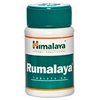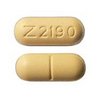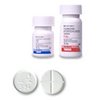INDICATIONS
Imuran is used to prevent rejection of a transplanted kidney. It belongs to the group of medicines known as immunosuppressive agents. Azathioprine will lower the body's natural immunity in patients who receive transplants to prevent rejection of the new kidney. It is also used to relieve joint pain and swelling for patients with rheumatoid arthritis.
INSTRUCTIONS
Use this medicine exactly as directed by your doctor. Do not take more of it, or less of it, than your doctor ordered. Taking too much may increase the chance of unwanted effects, and taking too little will not help your condition.
This medicine is sometimes given together with other medicines. If you are using several medicines together, make sure you understand how to take them during the day. Ask your doctor to help you plan a way to remember to take your medicines at the right times.
Do not stop taking this medicine without first checking with your doctor.
Imuran sometimes causes nausea or vomiting. Taking this medicine after meals or at bedtime may lessen stomach upset. Talk to your doctor if you have questions or continue to have problems with nausea or vomiting.
If you miss a dose of this medicine, take it as soon as possible. However, if it is almost time for your next dose, skip the missed dose and go back to your regular dosing schedule. Do not double doses.
DOSAGE
The dose of this medicine will be different for different patients. Follow your doctor's orders or the directions on the label. The following information includes only the average doses of this medicine. If your dose is different, do not change it unless your doctor tells you to do so.
The amount of medicine that you take depends on the strength of the medicine. Also, the number of doses you take each day, the time allowed between doses, and the length of time you take the medicine depend on the medical problem for which you are using the medicine.
For oral dosage form (tablets):
For kidney transplant rejection:
- Adults—Dose is based on body weight and must be determined by your doctor. The starting dose is usually 3 to 5 milligrams (mg) per kilogram (kg) of body weight per day given as a single dose once a day. The first dose is started either 1 to 3 days before the transplant or on the day of the transplant. Your doctor may adjust your dose as needed.
- Children—Use and dose must be determined by your doctor.
For rheumatoid arthritis:
- Adults—Dose is based on body weight and must be determined by your doctor. The starting dose is usually 1 milligram (mg) per kilogram (kg) of body weight per day given as a single dose once a day or divided into two doses. Your doctor may adjust your dose as needed. However, the dose is usually not more than 2.5 mg per kg of body weight per day.
- Children—Use and dose must be determined by your doctor.
STORAGE
Store the medicine in a closed container at room temperature, away from heat, moisture, and direct light. Keep from freezing.
Keep out of the reach of children.
Do not keep outdated medicine or medicine no longer needed.
Ask your healthcare professional how you should dispose of any medicine you do not use.







